Current fashion trends and timeless classics at prices that will delight. Clothes for home, work or sport. Choose from your favourite natural materials. Vintage linen clothing for fans of sustainable fashion. Enjoy shopping for new clothes in the peace and warmth of home. Shop with us with no masks, no tests, no vaccinations. There's no question that new nylon women's clothing sustainable fashion is a topic of endless fascination. Every season, new styles and trends emerge, and fashionistas everywhere scramble to stay ahead of the curve. But beyond simply being stylish, what does women's clothing say about us? What messages do we send with our choices? For many women, clothes are a way to express themselves. They use fashion as a form of self-expression, communicating their personality and style to the world. And while some may choose more understated looks, others make bolder statements with their clothing choices. But it's not just about self-expression. Clothes can also be used as a tool for empowerment. Wearing certain items can make you feel strong and confident, ready to take on anything that comes your way. In a world where women are often judged based on their appearance, clothes can be used as a way to subvert expectations and assert control over how you're seen by others. Of course, not all women view clothing in such serious terms. For many of us, getting dressed is simply about finding something that looks good and feels comfortable. We don't put much thought into the deeper meaning of our wardrobe choices. We just want something that will make us look & feel our best. No matter how you approach your personal style, there's no denying the power of clothes in shaping who we are and how we're perceived by others.
Nylon
Nylon is the first synthetic polymer and the first synthetic fiber to be made directly from coal, water and air and has had commercial success. Because the designation nylon is not protected, it is used by trade manufacturers not only for the original group of polyamides 6.6, but for all types of polyamide fibers. The fiber was discovered in a DuPont laboratory in the USA. Nylon is used to make lightweight and durable synthetic fabrics that share many of the same properties, such as easy maintenance, crease, stretch and shrink resistance. Nylon is softer than polyester, but also thicker. Nylon is a synthetic fabric first introduced in the 1930s as an alternative to silk. It quickly gained popularity due to its durability and affordability, and became a staple fabric in many garments, especially women's stockings. Today, nylon is still widely used in clothing and home furnishings, although it has been eclipsed by more modern synthetic fabrics such as polyester. Nylon is known for its strength and resilience, which makes it ideal for items that see a lot of wear and tear. It's often used for sportswear, outerwear, and activewear because it can withstand repeated movements and stretching without losing its shape. Nylon is also quick-drying, making it a good choice for swimwear or travel clothes that might get wet. Despite its utility, nylon does have some drawbacks. It's not very breathable, so it can feel sweaty and uncomfortable to wear in warm weather. It's also not absorbent, so moisture will sit on the surface of the fabric rather than being drawn away from the skin. And because nylon is made from petroleum products, it isn't considered environmentally friendly like natural fibers such as cotton or wool. Still, nylon remains a popular fabric choice thanks to its versatility and low cost. It's often used in blends with other fibers to create fabrics with different properties; for example, adding elastane creates spandex yarns that are stretchy yet strong enough for workout gear like leggings or yoga pants. When combined with natural fibers like cotton or wool ,nylon can help these materials resist wrinkles or stains .So whatever your needs might be , there's likely a nylon fabric that can suit them.
Sustainable fashion
Products in the
sustainable fashion category will delight you and our planet. By using ecological and local resources, we help our environment. An important emphasis on the quality of goods that not only look nice but also last a long time. By purchasing quality and timeless products, our customers help reduce excessive consumption. Diverse products from small designers and independent clothing brands. All this is the goal of our collection. Thousands of our satisfied customers are proof that this path is chosen correctly. Will you join too? Sustainable fashion is a movement that is gaining popularity among consumers, retailers, and designers. The challenge for the sustainable fashion industry is to produce clothing and accessories in an environmentally friendly and socially responsible manner. Sustainable fashion takes into account the entire lifecycle of a garment or accessory, from the sourcing of materials to manufacturing, distribution, use, and disposal. To be truly sustainable, a product must be designed with the intention of being reused or recycled back into its constituent parts at the end of its useful life. The term “sustainable fashion” was first coined by designer Katherine Swanson in 1987. It wasn’t until the late 1990s/early 2000s that sustainability became mainstream as part of the global environmental movement. In response to increased awareness of environmental issues such as climate change, depletion of natural resources, and pollution, many companies began to adopt eco-friendly practices throughout their supply chains. The sustainable fashion industry has continued to grow in recent years as more brands commit to producing garments using sustainable methods and materials. There are many reasons why people are choosing to buy sustainable fashion over fast fashion (clothing produced quickly and cheaply). For some consumers, it’s about making a personal statement or political statement against an industry they see as harmful to people and planet. Others simply appreciate the higher quality construction and longer lifespan of well-made garments made from natural fibers. And then there are those who simply want to save money in the long run by investing in pieces they can wear for years instead of disposing of after just a few wears like many fast fashion items end up being used for nowadays.. Whatever the reason may be for buying into sustainably made clothes there's no doubt that this type support system is on trend right now! So what does it mean when something is considered "sustainable?" Typically this refers to how earth's limited resources were used during production processes without causing damage or depleting them so future generations can still enjoy them too - think renewable energy sources like solar panels versus fossil fuels like coal power plants . Other important considerations include things such working conditions (are employees treated fairly?), pay rates (a livable wage?), water & air pollution output during manufacturing (limit toxic runoff!), plus biodegradability at end-of-product life which we'll touch on more later but all these factors play an important role when discussing whether something can be classified as "sustainable." Natural fibers such as cotton , wool , linen , hemp , bamboo etc., have been grown for centuries without much intervention from humans outside typical farming practices . On average these types need far less water than conventional crops plus don't typically require pesticides or other harsh chemicals often used with manmade / synthetic textiles which can pollute both soil & waterways . When sourced & processed responsibly natural fibers also tend break down much quicker once disposed compared say polyester fabric which could take decades before fully decomposing leaving behind harmful microplastics that not only negatively impact our environment but also eventually ourselves if ingested . So overall using clothings made out naturally derived substances would appear be better choice both you & planet...but not always! Just because something comes from nature doesn't guarantee it's necessarily good you - take poison ivy plant example: completely organic yet contact with leaves will cause skin irritation most people . There other factors consider beyond material content itself determine level sustainability including how item actually manufactured process known wet finishing where dyes set fabrics usually very resource intensive lots wastewater created contaminated hazardous chemicals If done incorrectly lead serious health problems workers exposed These effects felt way downstream final product reaches consumer. Imagine all steps involved getting shirt onto store shelves. That's lot different than farm growing cotton fiber. Then spinning yarn weaving fabric dying printing packaging shipping selling. Finally wearing washing drying discarding. All choices along affect not only looks feel durability but also cost ecological footprint. Let's examine closer look popular textile options see differences between them detail what goes making each kind article clothing might find closet today.
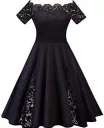 Dresses
Dresses
 Skirts
Skirts
 Coats, Jackets
Coats, Jackets
 Blazers, Boleros
Blazers, Boleros
 Trousers, Leggings
Trousers, Leggings
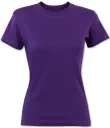 T-shirts, Tops
T-shirts, Tops
 Sweaters, Cardigans
Sweaters, Cardigans
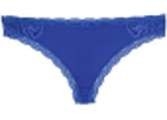 Lingerie
Lingerie
 Sweatshirts
Sweatshirts
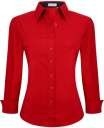 Blouses, Shirts
Blouses, Shirts
 Socks, Tights
Socks, Tights
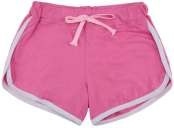 Shorts
Shorts
 Sleepwear
Sleepwear
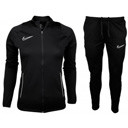 Tracksuits
Tracksuits
 Jumpsuits
Jumpsuits
 Vests
Vests
 Swimwear
Swimwear